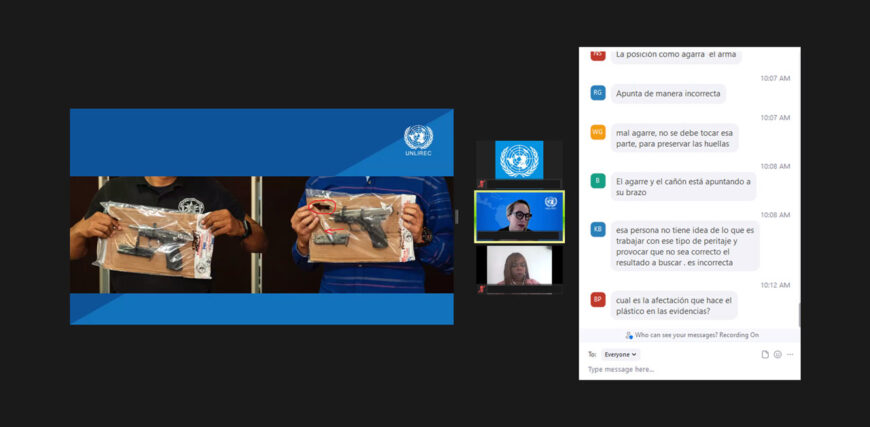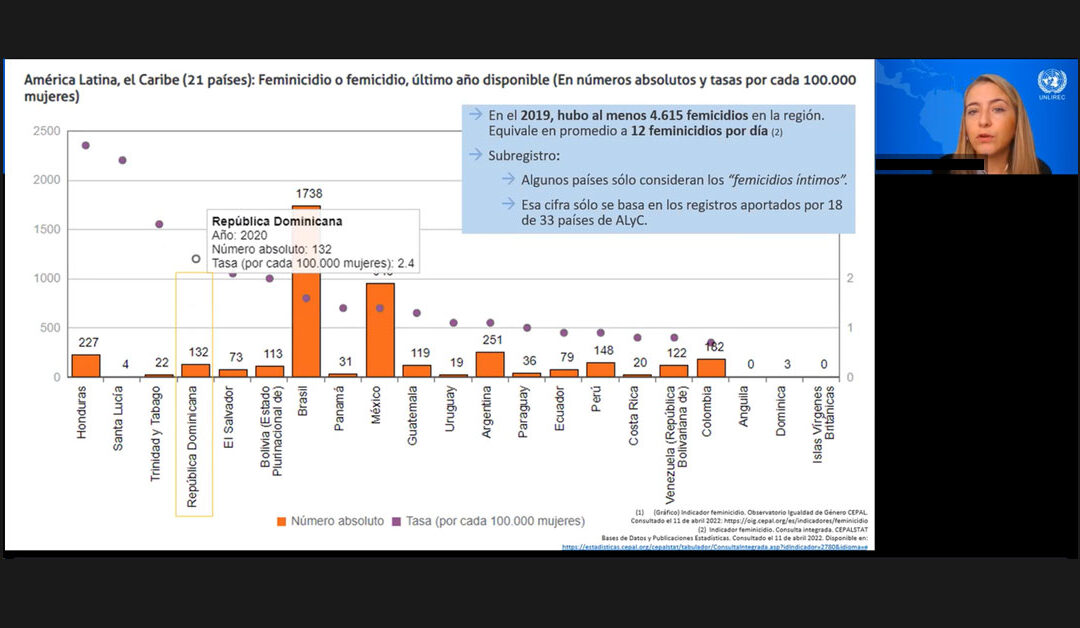From the 25 April to 6 May 2022, the United Nations Regions Centre for Peace, Disarmament and Development in Latin America and the Caribbean (UNLIREC), in coordination with the Dominican Republic’s Ministry of Women, carried out the Specialised Course on Firearms Investigations from a Gender Perspective (FIGP).
This course, in addition to sensitising participants on the importance of applying gender perspectives in firearms-related criminal investigations, aims at strengthening their technical knowledge applicable to the scientific method of criminal investigation, as well as inter-institutional cooperation in these areas.
Twenty-nine (29) officials from different institutions such as the Judiciary, the Attorney General’s office, the National Police and the Ministry of Women were trained.

The training course took place virtually and comprised both synchronous and asynchronous sessions. The FIGP addressed theoretical and technical aspects of criminal investigations and the way in which applying gender perspectives, contributes to conclusions free from stereotypes. Case studies were carried out to shed light on the absence of gender approaches and how it negatively affects the rights of victims and their families.
During the training, attention was drawn to the use of firearms to commit different types of violence against women, such as threats, intimidations and coercion, among others. The importance of properly managing the crime scene and the collection of firearms and ammunition as evidence for the purpose of gender-sensitive criminal investigations was emphasised. Lastly, recommendations on gender-responsive procedures were shared and participants were urged to strengthen communication and cooperation among all actors involved in the different stages of the investigations, thus contributing to reduce the high level of impunity of violence against women.

This activity is part of the project “Supporting gender mainstreamed policies, programmes and actions in the fight against small arms trafficking and misuse”, funded by the European Union.

